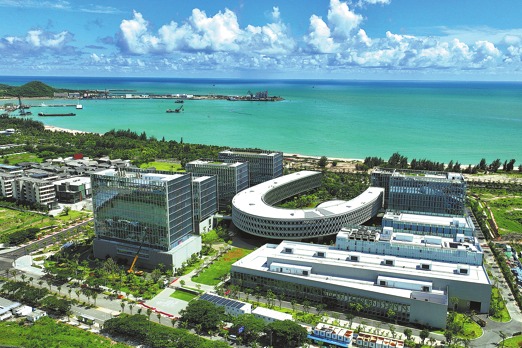Mutually rewarding
China's activities in the LAC region demonstrate a commitment to win-win results in terms of trade and economic development

China's activities in the LAC region demonstrate a commitment to win-win results in terms of trade and economic development

According to the United Nations Conference on Trade and Development, the trade of developing countries outperformed that of developed countries in the fourth quarter of 2021, particularly South-South trade, which registered growth above the global average, increasing 32 percent vis-à-vis 2020, and 33 percent vis-à-vis 2019.Among the Global South, the Latin America and the Caribbean region had one of the best performances, with a growth rate of 41 percent in imports, and 32 percent in exports in the fourth quarter of 2021. Considering the fact that China has become the main trade partner of the majority of the LAC countries, it is fair to state that the China-LAC cooperation has been aimed at win-win results, and can even be considered a model of South-South cooperation.
Also, it is possible to affirm that this cooperation has flourished notwithstanding the context of the West's Cold War mentality, in which particularly the United States has promoted zero-sum dynamics which has contributed to the formation of "geopolitics of contention". This type of geopolitical process implies that the US strives to contain other international major countries, such as China, on both the global and regional levels, and the LAC region is no exception.
While the US promotes its Cold War rhetoric, China promotes win-win cooperation. The latter includes the commitment to the existing organizational architecture. For example, China has been a member of the World Bank since 1980, and a donor member of the Inter-American Development Bank (IADB) since 2009. Thenceforth, China has been committed to Latin America's development via a platform of capital investments that aims to mobilize $1 billion, or the creation of a co-finance fund to Latin America of $2 billion, both in collaboration with the IADB. Also, the IADB has hosted several editions of the China-Latin America and the Caribbean Business Summit, which is a mechanism for deepening bilateral economic and trade cooperation. As a consequence, China's investment presence in the LAC region has taken into consideration the institutional and material needs for development.
It is important to remember that long before China's full arrival in Latin America, the US strove to implement a particular style of democracy in the Latin American countries through institutions such as the United States Agency for International Development, or the National Endowment for Democracy. The failure of implementing this style of democracy in the Latin American region notwithstanding the US' efforts confirm that democracy is not a "one-size-fits-all" product. The development of the LAC region has been advancing in spite of the US pressure. China's economic presence in the region has injected vitality into it.
The promotion of a particular style of democracy in the LAC region instead of committing to its economic development is an outcome of the US' ideological thinking and zero-sum game mentality. In contrast, China's commercial activities in the region demonstrate a commitment to win-win results in terms of trade and economic development, as seen during the 2008 global financial crisis, when China's increase of raw materials demand helped the LAC countries to better face the effects of the economic cataclysm, or as seen during the COVID-19 pandemic in which China became the main provider of the vaccines administered in the Latin American region.
This year marks the 10th anniversary of the Belt and Road Initiative, and also marks the fifth anniversary since then Chinese foreign minister Wang Yi characterized the LAC as the "natural extension" of the ancient maritime Silk Road. In all, 22 LAC countries are participating in the Belt and Road Initiative. As a result, China-LAC trade and financial cooperation has strengthened. The US economic relations with the LAC have been strong, but the economic problems faced by the US, which have caused a technical recession in the US economy, have made the US no longer a reliable trade partner. Besides, the Cold War rhetoric promoted by many US officials and mass media has shaped the economic relations to the point that any decision to deepen economic relations with the US means acquiescing to the political conditionality that comes with the US' Cold War mentality. In other words, the supposedly free market that the US once defended is no longer free after all; it is subjected to the US political and ideological biases.
In contrast, China's only condition to further develop economic relations is for other countries to have political will to do so. In the LAC countries' efforts to materialize autonomy and sovereignty, to deepen South-South cooperation with China is a strategic choice to assure win-win cooperation with another country.
The author is an associate professor and researcher of the Politics and Culture Department at the Metropolitan Autonomous University and chair of the Mexican Eurasia Studies Group. The author contributed this article to China Watch, a think tank powered by China Daily.
Contact the editor at editor@chinawatch.cn.


































